Similar to how hummus is viewed in the Arab world, practically every Balkan country claims Ajvar – a popular vegetable spread based on roasted red peppers – as its own
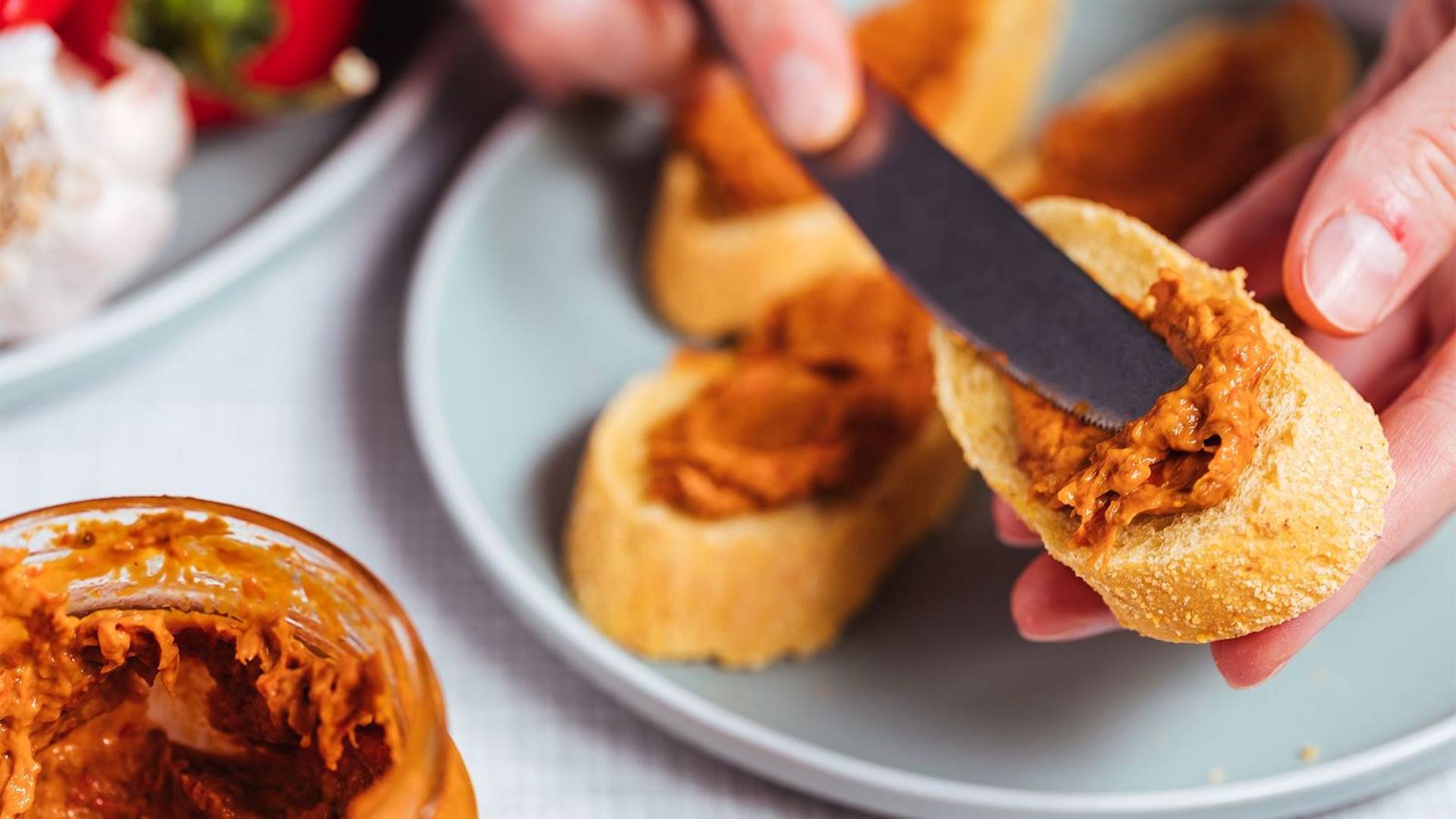
Just a decade ago, Melisa Hasanspahić from the eastern Bosnian town of Goražde could not have imagined that today she would be running a food production business based on a recipe she inherited from her mother. However, her life changed when she started selling jars of her homemade ajvar, a widely popular vegetable delicacy, that she had previously only gifted to her loved ones.
“I love ajvar; I’ve always adored it,” said Hasanspahić, now a food entrepreneur, whom family, friends, and customers jokingly refer to as “Lady Ajvar”.
The orange spread, based on roasted red peppers, is not only adored by Hasanspahić but also by the whole of Bosnia and Herzegovina – and the entire Balkan region – where other “Ladies Ajvar” like her give away or sell homemade ajvar in their communities.
Related Articles:
- Dr. Uma Naidoo: No. 1 food to help the brain ‘stay sharp’ and ‘age well’
- Mediterranean diet named the best diet for 2022
- Four plants that are scientifically proven to be therapeutic
But while Hasanspahić uses red peppers and aubergine to make it, some argue that “real” ajvar should only consist of four ingredients: red pepper, oil, salt, and vinegar.
Recipes, however, depend on the region and the cook. Some, for instance, require the addition of garlic, others red onions, carrots, and tomatoes. Some do not mention vinegar but suggest adding sugar. And many differ on whether the vegetables should be roasted, baked, boiled, or even ground fresh. Whether the ajvar will have a sweet or spicy taste depends on the type of pepper used.
In the first known published ajvar recipe, found in the Great Serbian Cookbook from the 19th Century, author Katarina Popović mentions both peppers and aubergine. Yet, Serbians usually make ajvar only from red peppers, while citizens of North Macedonia are typically the ones who also use aubergine.
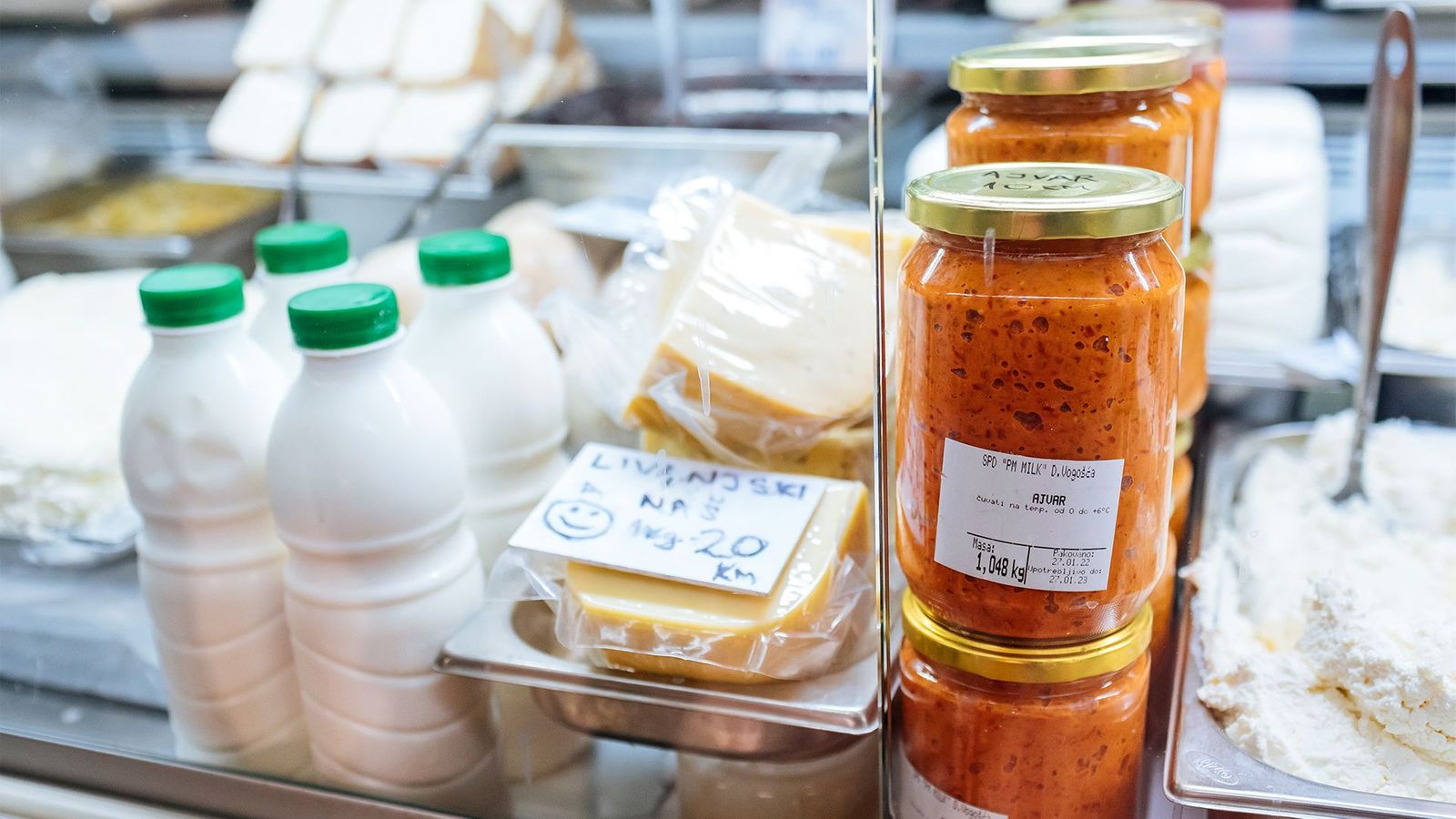
The discrepancy between this first documented recipe and the current method of preparation in Serbia is likely related to the fact that people have moved around the region and shared food traditions.
Similar to how hummus is viewed in the Arab world, practically every Balkan country claims ajvar as its own. Dua Lipa, a British singer of Kosovo origin, referred to ajvar as an Albanian dish in a 2020 interview, which infuriated some Serbians who insist that ajvar is Serbian, which in turn upset some citizens of North Macedonia who say it belongs to them.
Heated ajvar debates have been sparked before, such as when the Slovenian media reported on the attempt of a Slovenian food company to protect the name “ajvar” in the German market; and when RTS (Radio Television of Serbia) reported that a Serbian ajvar producer would file a lawsuit against one from North Macedonia for falsely branding and selling its product as “Leskovac Ajvar” (famous ajvar produced in southern Serbia’s city of Leskovac).
Much like the 2003 Bulgarian documentary Whose Is This Song? about a popular folk song that all Balkan nations claim as theirs, the battle over ajvar depicts the tragicomic nationalism ever-present in the conflict-ridden region. In the countries that emerged from the disintegration of the former Yugoslavia in the 1990s, cultural and culinary heritage helped form a sense of identity, and every country longs to prove that what used to be a common good is exclusively it’s own.
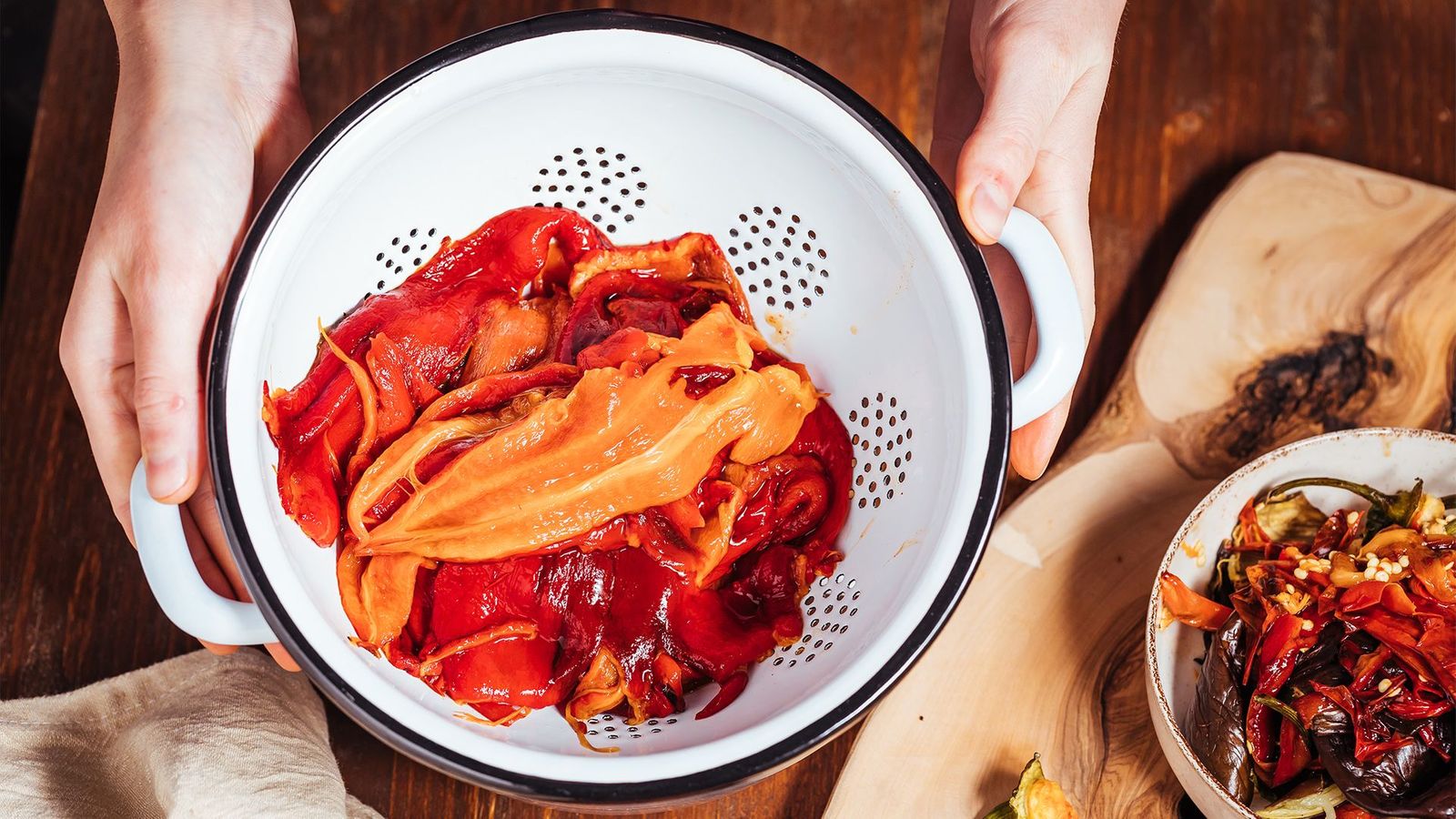
While there’s little consensus over what constitutes the “true” recipe for ajvar, or which nation it officially belongs to, one thing that’s for certain is that homemade ajvar is always produced in autumn – between September and October – during the “pepper season”. The vegetables are individually cooked, peeled, and then ground together with the remaining ingredients. Preserved in glass jars, ajvar is considered a “winter food” but is generally eaten year-round.
The versatile treat can be used as a topping, condiment, side dish, or the main course, although it’s often served as part of Meza, a Balkan appetizer platter with cheese, salami, and other cured meats, or with ćevapi (Balkan minced meat sticks). It can be mixed with broth, served with steak, or poured over omelets, risotto, or pasta. With a silky texture and salty-sweet flavor, it’s pleasing even when simply spread on a slice of bread.
The word “Ajvar” comes from the Turkish word Havyar, which means “Caviar”
The word “ajvar” comes from the Turkish word Havyar, which means “caviar”. According to some explanations, it bears that name because peppers and oil were expensive and considered a luxury in Belgrade at the end of the 19th Century, and Kafana (traditional Serbian eateries) marketed the orange spread on their menus as “red pepper caviar”. Now, however, vegetables cost much less and thus ajvar is very affordable.
“Ajvar is made of peppers that are available to practically everyone; it’s easy to make; it’s relatively cheap… It can be the main course and a side dish – it’s the caviar for the poor,” said ethnologist Slađana Rajković, who is an adviser at the National Museum in Leskovac.
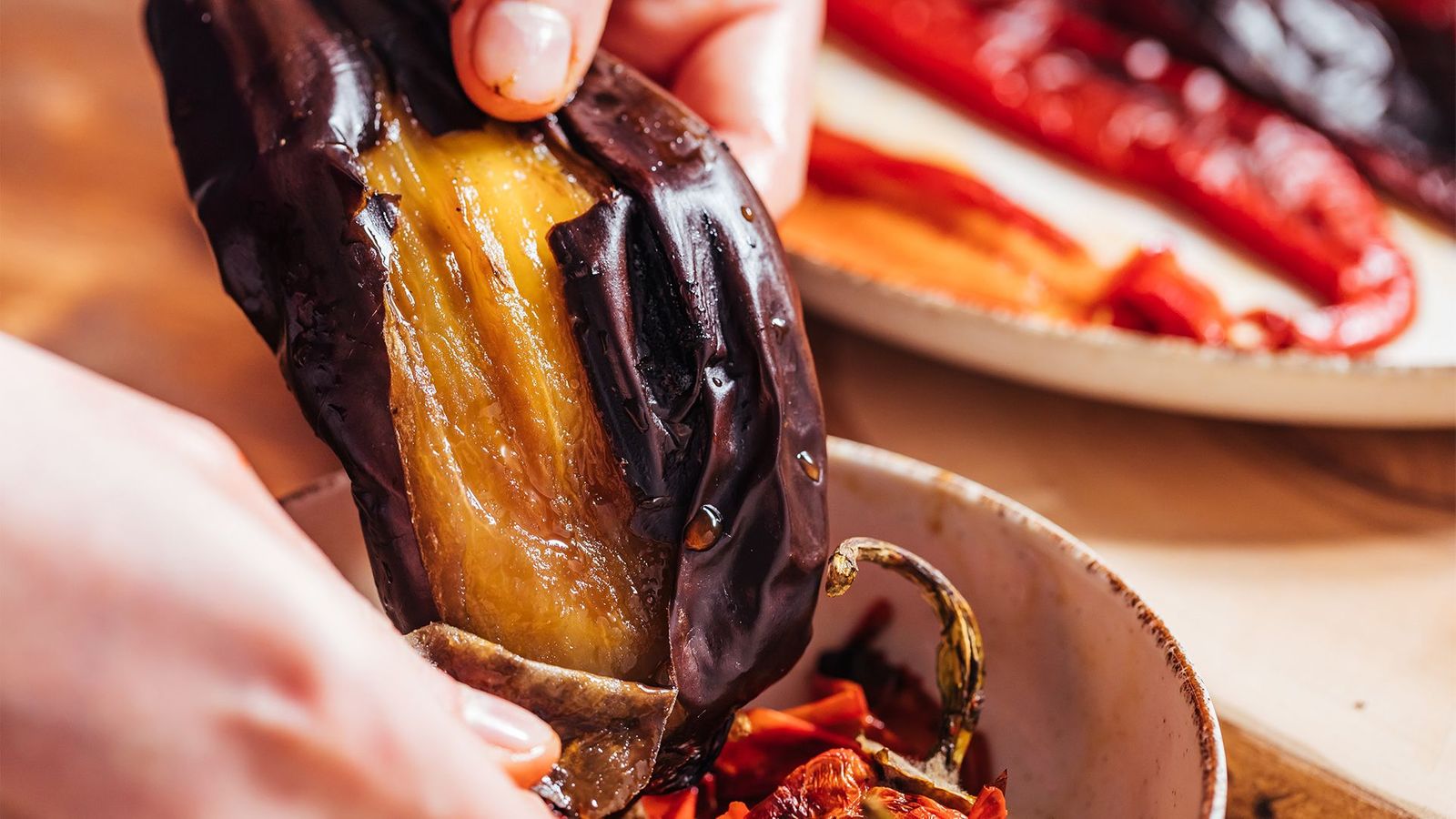
Across the Balkans, ajvar has come to represent much more than just food; it’s also a source of pride and comfort and offers a sense of belonging. During autumn and winter, for example, people across the Balkans gather at ajvar festivals and ajvar-making competitions to celebrate the spread. Ajvar’s appreciation is also apparent in the online world.
“We can show the world what the Balkan power is if we could get #ajvar trending,” said Bosnian writer Aleksandar Hemon, who recently tweeted an image of jars of different types of ajvar. His followers started posting their own jars and commenting on different versions of it in his thread.
It has also been trending within Balkan pop culture. Croatian musician Tonči Huljić wrote a witty song about an attempt to “smuggle” a jar of ajvar into the European Union, which has strict food import rules. A group of Serbian musicians expressed a more intimate relationship with ajvar in a song whose chorus translates to “Ajvar – five letters; ajvar – one color; a jar full of serenity that is only mine”. And last year’s Kosovo-Albanian feature film Hive followed the true story of Kosovo war widow Fahrije Hoti, who founded an ajvar production company in her village to help widows regain their lives and become empowered.
In the recent award-winning Serbian film Ajvar – a love story about a Serbian couple living in Sweden – the popular dish symbolizes family, love, and nostalgia, in which the introduction states that ajvar is “commonly found in the suitcases of Serbian emigrants”.
It’s precisely because of Balkan expatriates, many of whom live in Scandinavia, that ajvar has become popularised in northern European supermarkets, kitchens, and even languages. The word “ajvar” has been entered into Swedish and Danish dictionaries, where it generally is defined as “a pepper cream with Balkan origins”.
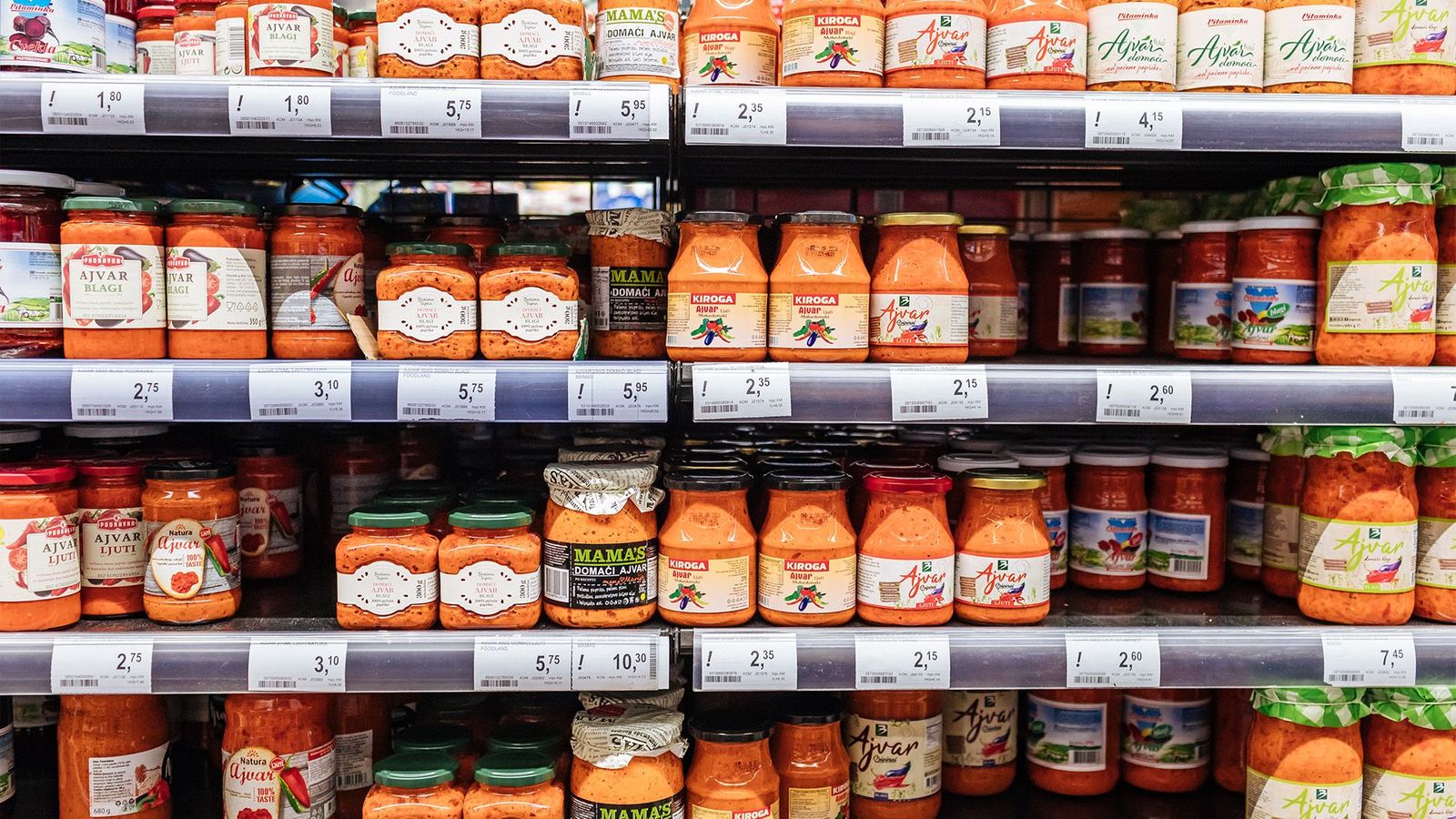
At Terra Madre Salone del Gusto festivals organized by the International Slow Food Foundation based in Italy, ajvar is dubbed as salsa (“sauce” in Italian). “We would always sell all the jars [of ajvar] we would take with us,” said Jasmina Šahović, president of the Bosnian women’s association Emina, which has been presenting ajvar and other Balkan foods at the events for several years.
Apart from being a traditional food, ajvar – whose ingredients naturally fit into modern dietary trends – seems to have a bright future. It’s suitable for vegetarians and vegans and doesn’t contain gluten. Some vegan food and travel websites, such as Yummy Plants, Simply Healthy Vegan, Slavic Vegan, and Minimalist Traveller, recommend it to their followers. Recognizing its market potential, the Croatian food company Podravka, for example, has started branding its ajvar as a vegan product.
In line with the growing demand for vegan and organic food, more and more restaurants are including ajvar on their menus
In line with the growing demand for vegan and organic food, more and more restaurants are including ajvar on their menus. “It could not have come more naturally,” said Željka Kisić, manager of vegan Vegehop restaurant in Croatia’s capital of Zagreb. “Ajvar is a special food that is difficult to avoid in our traditional cuisine and especially in a vegan diet.”
Regional tourism companies are also seeing ajvar’s potential and are targeting vegetarian visitors curious about Balkan cuisine, which is heavily dependent on meat and dairy products. For example, participants in the Food and Culture Tours in the Serbian capital Belgrade can try ajvar and learn about its links to local culture. South of Belgrade, in North Macedonia’s capital of Skopje, Skopje Walking Tours uses a similar concept by offering tailor-made vegetarian and vegan food tours that include ajvar tastings.
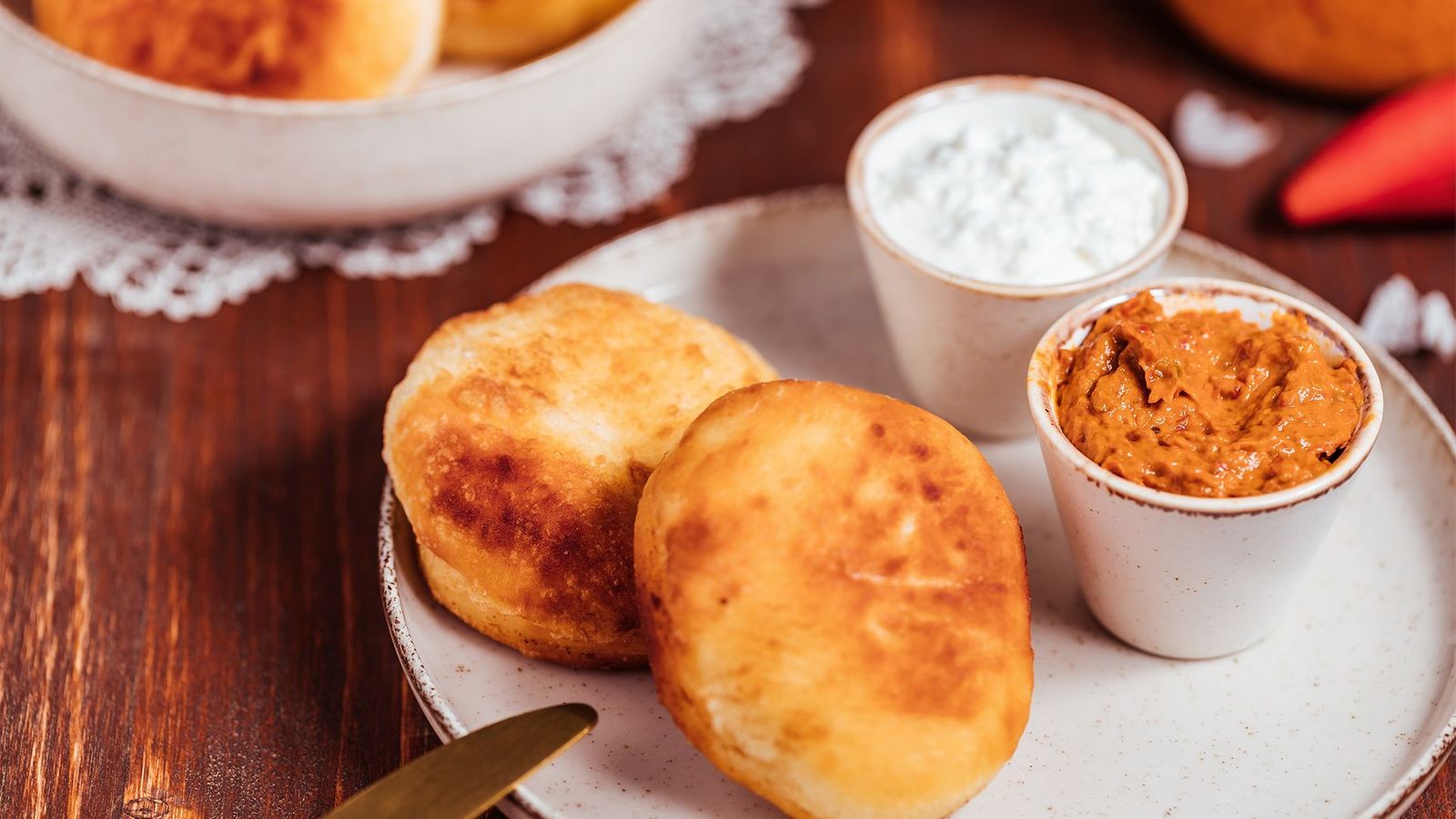
“A few months before the pandemic, I came up with the idea to start doing Ajvar tours,” said Elena Mitkovska, the company’s founder. “My family and I were preparing ajvar in our backyard and I told them it would be a wonderful idea to host travelers next year and show them the whole process, but then Covid-19 broke out.”
Mitkovska hopes to launch her Ajvar tour this coming autumn, which will be an all-day program that allows guests to participate in the whole ajvar-making process, from cleaning the peppers and cooking to enjoying a family-style lunch.
“Over the years, I have realized that people are looking for an experience in which they can have a personal touch with the local reality, and there is nothing more local and traditional than making ajvar in someone’s home,” Mitkovska added.
Judging by travelers’ reactions so far, Mitkovska believes that her Ajvar tours will be successful. And like many people in the Balkans, she cannot wait for autumn to come.
Napomena o autorskim pravima: Dozvoljeno preuzimanje sadržaja isključivo uz navođenje linka prema stranici našeg portala sa koje je sadržaj preuzet. Stavovi izraženi u ovom tekstu autorovi su i ne odražavaju nužno uredničku politiku The Balkantimes Press.
Copyright Notice: It is allowed to download the content only by providing a link to the page of our portal from which the content was downloaded. The views expressed in this text are those of the authors and do not necessarily reflect the editorial policies of The Balkantimes Press.
